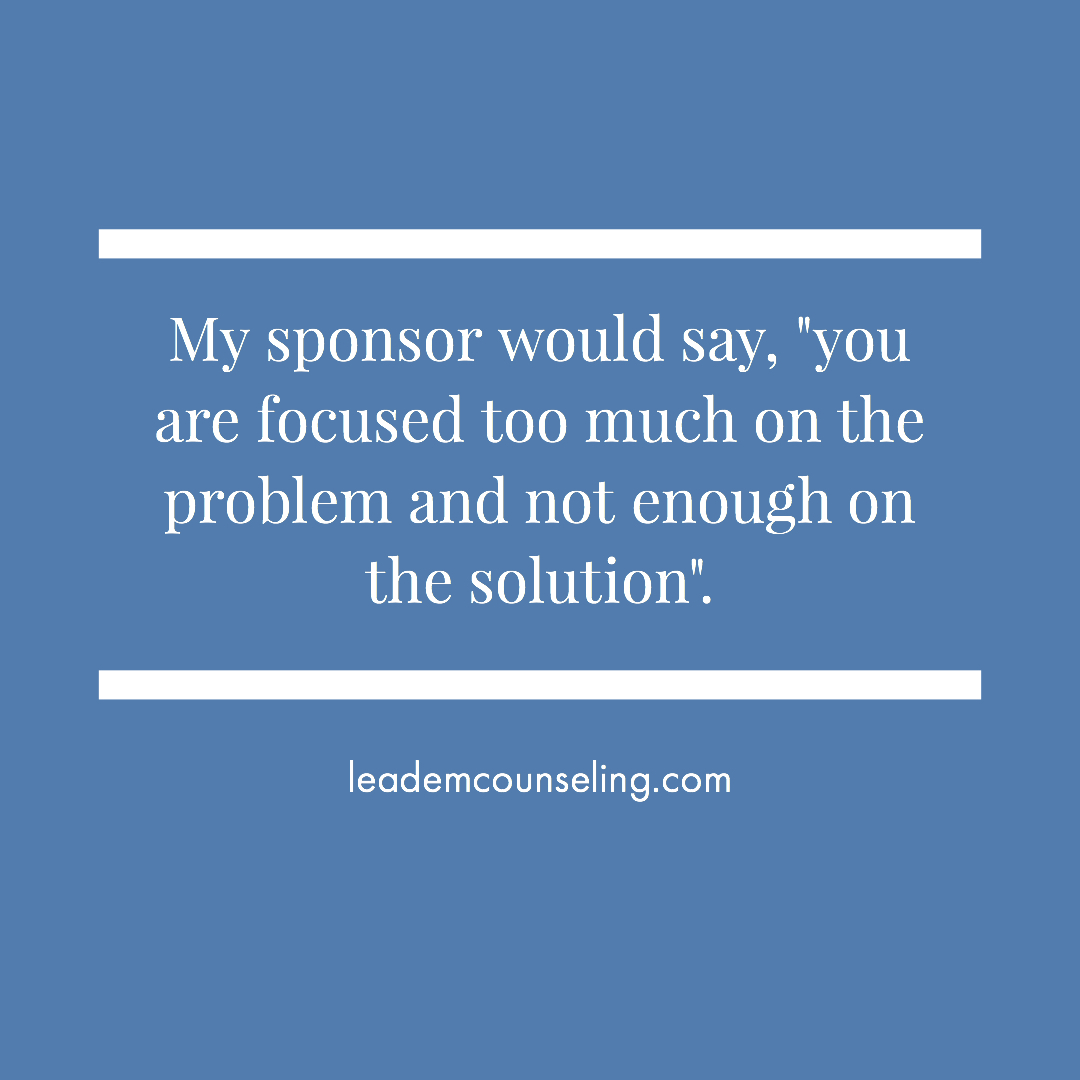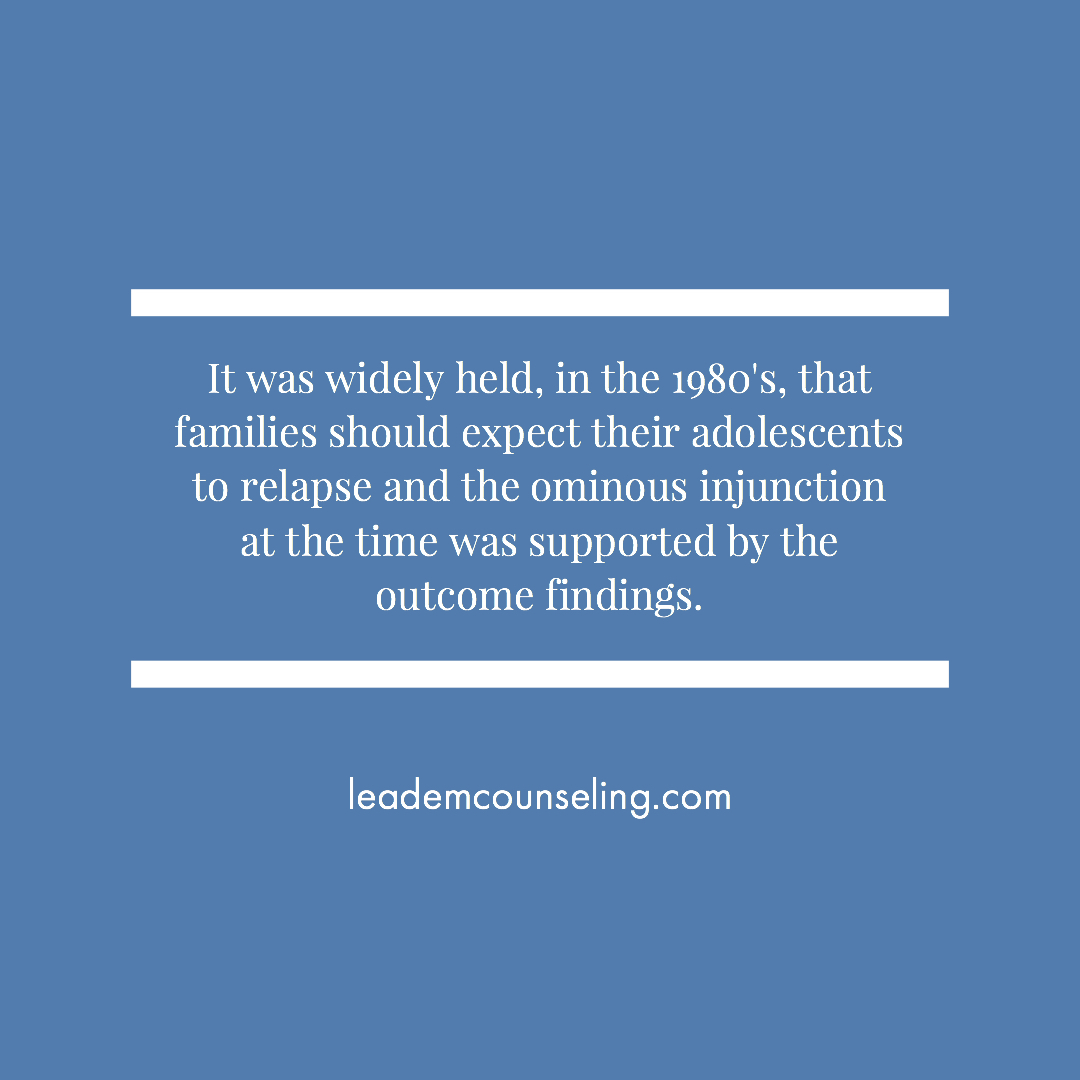Our Beacon of Hope is Becoming Brighter
Leadem Counseling and Consulting Services, (LCCS) was incorporated 29 years ago with a vision to develop products and services that would address the therapeutic needs we felt were unmet in the industry we entered in 1973. This year LCCS is celebrating its many accomplishments and working hard to bring a variety of new products and services to fruition. We see these products and services as the pillars of LCCS that will help to fill the gaps in the treatment of relapse prevention, couples treatment and intervention.
Beacon of Hope is one of the three service pillars that supports our direct client care at LCCS. This pillar incorporates our clinical work in relapse prevention, whose core tenants were first introduced in my work with chronic relapsing alcoholics in a New Jersey halfway house over 44 years ago. Intentional work on the development of this service pillar began 28 years ago in the form of strategies aimed at reducing the staggering incidence of relapse in residentially treated addicted adolescents. It was widely held, at the time, that families should expect their adolescents to relapse. The outcome findings at the time supported the ominous injunction since treatment providers were generally reporting relapse rates of 80-90% of their young people within the first 90 days. In a very different picture driven by a very different model, our adolescents were enjoying a sustained abstinence rate of 72% at one-year post-discharge.
We Can See Abstinence Numbers Like This Again
In 2009, that model was codified into An Ounce of Prevention: A Course in Relapse Prevention [1],(Leadem & Leadem) to guide end-users (addicts and their families and support system) through the process of demystifying relapse. This comprehensive journey through a cascading series of therapeutic assignments results in the creation of an individualized relapse prevention plan that provides for a high level of therapeutic monitoring and patient care accountability. While the model began as a method for working with chronic substance addicted populations, we have been using it within our large private practice which serves a full range of substance and process addictions. The efficacy we have seen in the past 8 years has made it a great resource to our clinical treatment team for working with newly recovering families looking to avoid the first relapse as well as a safety net for those who have struggled with relapse for years.
We were inspired by the outcomes we were seeing within our practice, so Shawn and I began introducing our model in both national and regional training venues in 2012 and the reception we received encouraged us to develop Creating Sober Waypoints™️curricula suitable for a wide variety of addiction treatment modalities. The current library of curricula includes models that will serve as a primary course of treatment or as the basis for specialized tracks for use by residential and IOP programs as well as individual therapists. And, we are currently completing a model that will provide faith-based communities with a framework for building viable mission services for the communities they serve who are being devastated by the growing drug epidemic in our nation and neighborhoods.
On this journey, we have met many others who share our vision for how relapse can be addressed and have chosen to join alongside us. A few have decided to become Certified Relapse Prevention Navigators and have been awarded certification and others are nearing conclusion of the mentoring process that completes the requirements for certification. Furthermore, treatment facilities have stated, by implementing our model into their course in treatment, that they believe in the model as well.
Our Empirical Research is Beginning to Mirror Our Clinical Experience
 The Right Step Euless, which is a member of the Elements Behavioral Health family of treatment facilities is one of the first in the country to fully integrate our Creating Sober Waypoints TMcurriculum, (based on An Ounce of Prevention: A Course in Relapse Prevention, Leadem & Leadem, 2009) into their course of treatment via a chronic relapse track they launched in September/October of 2017. Since then, they have played an important role in helping us begin to collect empirical data on the effectiveness of our model. The survey data and the anecdotal reports we have collected from both treatment providers and clients are very positive. The data is validating the clinical experiences we have had over the last nine years which support the model’s efficacy. Our initial findings seem to confirm what we have known from our clinical experience for years – our model is effective at helping others intervene on their relapse process. Our data sample size continues to grow and in the next few months we suspect that we will have sufficient data to begin publishing positive findings about the efficacy of our model – an important step in our efforts to show that our model is an evidence-based model. This important achievement has been possible because of the help of The Right Step’s ground-breaking specialized treatment track.
The Right Step Euless, which is a member of the Elements Behavioral Health family of treatment facilities is one of the first in the country to fully integrate our Creating Sober Waypoints TMcurriculum, (based on An Ounce of Prevention: A Course in Relapse Prevention, Leadem & Leadem, 2009) into their course of treatment via a chronic relapse track they launched in September/October of 2017. Since then, they have played an important role in helping us begin to collect empirical data on the effectiveness of our model. The survey data and the anecdotal reports we have collected from both treatment providers and clients are very positive. The data is validating the clinical experiences we have had over the last nine years which support the model’s efficacy. Our initial findings seem to confirm what we have known from our clinical experience for years – our model is effective at helping others intervene on their relapse process. Our data sample size continues to grow and in the next few months we suspect that we will have sufficient data to begin publishing positive findings about the efficacy of our model – an important step in our efforts to show that our model is an evidence-based model. This important achievement has been possible because of the help of The Right Step’s ground-breaking specialized treatment track.
There is Hope When You Focus More on the Solution
We know firsthand that this work, while deeply rewarding, can drain an addiction treatment provider’s emotional resources especially when dealing with relapse. The stories are heartbreaking. We have sat with providers who have openly wept in frustration and self-doubt when a client who seemed to be on solid ground and destined for long term sobriety showed up in the admission’s office to be detoxed the day after a month-long treatment experience. There is, for many, an irrefutable urge to find someone or something to blame. It is common to blame the client for having insufficient motivation, or a family for holding on to old resentments and not being supportive enough or for being too enabling.
 The list of potential people, places, events and circumstances to blame are limitless. I had personally and professionally targeted every plausible cause-effect relationship in my early work in the treatment industry, but the truth was that the cause should not have been my focus. My focus should have been on the solution. The cause you could argue was that I and unfortunately many of my colleagues were not investing the energy into framing meaningful interventions into the relapse process. Simply, we were not doing enough to help clients identify personalized symptoms of relapse and craft measurable intervention strategies before the person returned to his or her drug of choice. My first sponsor would have been more concrete: “you are focused too much on the problem and not enough on the solution”. We are professionally grateful for the opportunity to have invested our energy in the launch of a program for training prospective Navigators to be able to help their clients, friends and grandchildren to plot a course to sustained sobriety; in other words — to guide them toward the solution.
The list of potential people, places, events and circumstances to blame are limitless. I had personally and professionally targeted every plausible cause-effect relationship in my early work in the treatment industry, but the truth was that the cause should not have been my focus. My focus should have been on the solution. The cause you could argue was that I and unfortunately many of my colleagues were not investing the energy into framing meaningful interventions into the relapse process. Simply, we were not doing enough to help clients identify personalized symptoms of relapse and craft measurable intervention strategies before the person returned to his or her drug of choice. My first sponsor would have been more concrete: “you are focused too much on the problem and not enough on the solution”. We are professionally grateful for the opportunity to have invested our energy in the launch of a program for training prospective Navigators to be able to help their clients, friends and grandchildren to plot a course to sustained sobriety; in other words — to guide them toward the solution.
If we can help you better understand the challenges you and your client or loved one are facing in recovery please to not hesitate to contact us for a free consultation.
See our book: An Ounce of Prevention: A Course in Relapse Prevention
Related Article(s)
What is Relapse? What is Relapse Prevention?
Treatment Works, Recovery is Possible & Relapse is Not Part of It
About the Authors
 Both John and Shawn Leadem are Licensed Clinical Social Workers in private practice in Toms River, New Jersey.
Both John and Shawn Leadem are Licensed Clinical Social Workers in private practice in Toms River, New Jersey.
John has recently celebrated his 45th year in recovery and believes that “service to others is the cornerstone of spiritual maturity.” His professional service to addicted individuals and their families has included the development and direction of addiction treatment services in a full array of modalities from half-way houses to large residential treatment facilities over the past 44 years.
Shawn’s lifelong exposure to the recovery culture and his personal recovery experience has left him with a deep personal empathy for the social and emotional suffering endured by others and a strong faith in a person’s ability to change. He has received his certification as a Sexual Addiction Therapist and as a Multiple Addictions Therapist by the International Institute for Trauma & Addiction Professionals.
Together, John and Shawn have co-authored and brought their unique treatment model of relapse prevention, An Ounce of Prevention: A Course in Relapse Prevention, to residential treatment centers across the United States, they have trained therapists at numerous national and international conferences, and most recently have trained many EAP programs associated with many State Unions.
Copyright, John Leadem & Shawn Leadem, 2018
You are free to copy this article for future reference, to post it on other web sites and to share it with family or friends. If you would like to have permission to include it in a publication of your own you can request written permission by contacting the authors at www.leademcounseling.com.
Footnotes:
[1] Soon to be retitled Plotting a Course to Sobriety™.
[apss-share networks="facebook, twitter, google-plus, pinterest, linkedin" counter="0" total_counter="0" http_count="1"]









No Comments Yet | Post Comment
You can be the first to comment!
Leave a comment